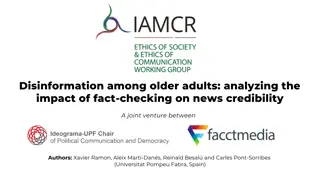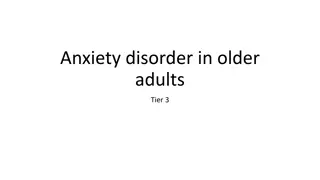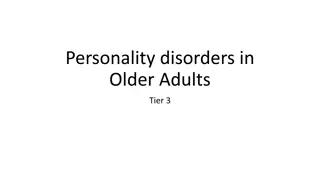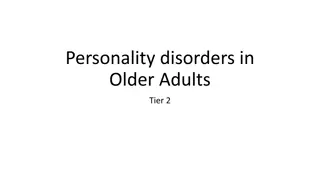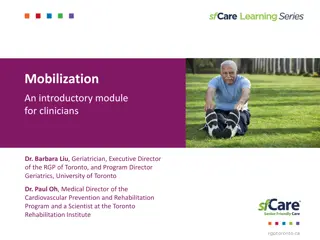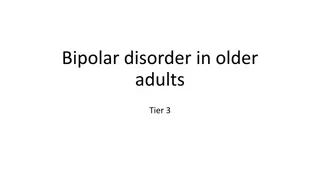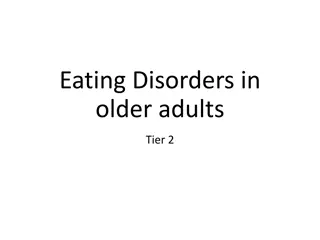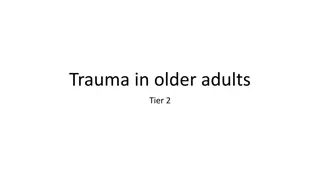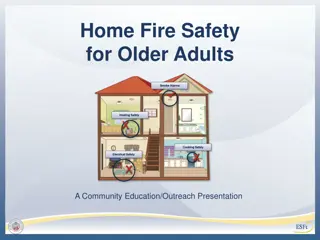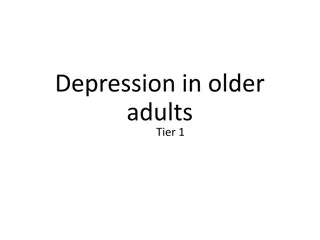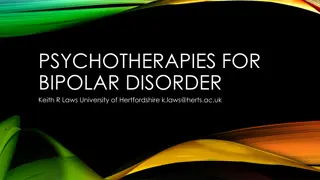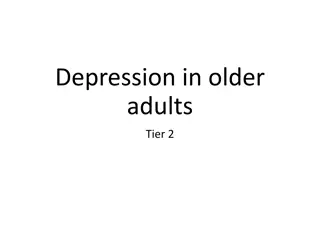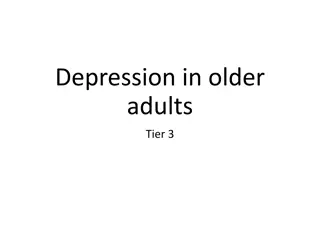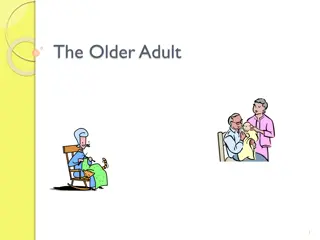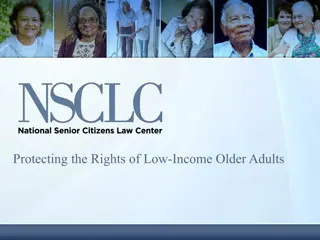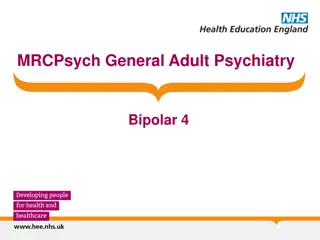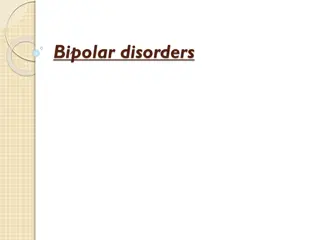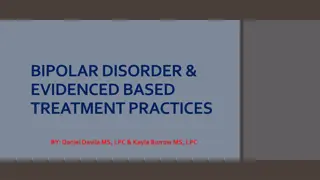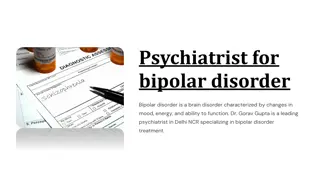Bipolar Disorder in Older Adults
Bipolar disorder in older adults can present challenges due to potential late-onset diagnosis and missed symptoms. Recognizing symptoms of mania and depression, understanding other possible causes, and being aware of associated risks are crucial. Learn how to help by contacting a GP, monitoring medication adherence, and ensuring safety. Utilize resources like the Minded for Families website for support.
Download Presentation

Please find below an Image/Link to download the presentation.
The content on the website is provided AS IS for your information and personal use only. It may not be sold, licensed, or shared on other websites without obtaining consent from the author.If you encounter any issues during the download, it is possible that the publisher has removed the file from their server.
You are allowed to download the files provided on this website for personal or commercial use, subject to the condition that they are used lawfully. All files are the property of their respective owners.
The content on the website is provided AS IS for your information and personal use only. It may not be sold, licensed, or shared on other websites without obtaining consent from the author.
E N D
Presentation Transcript
Bipolar disorder in older adults Tier 1
Bipolar disorder Characterised by episodes of mania (elated mood) interspersed with episodes of depression (low mood). Some older adults can present with recurrent depressive episodes followed by episode of mania. Older adults can have a pre-existing diagnosis of bipolar disorder or they may present with late onset bipolar disorder. Research suggests that late onset bipolar disorder usually presents after the age of 50 years. Older adults can present with memory problems which means the diagnosis is missed.
Symptoms Symptoms of mania can include Excessive energy Inability to sleep Racing thoughts Fast speech Excessive spending or reckless behaviour Inability to concentrate Delusional thoughts Hallucinations Symptoms of depression can include Sleep disturbance Fatigue Psychomotor retardation Poor memory Hopelessness Loss of interest Suicidal thoughts Feelings of guilt
Other causes for symptoms of mania Dementia - especially the early stages Delirium Alcohol and drug misuse/ withdrawals Medications - check for recent medication changes Physical causes include thyroid problems, cancers etc
Risks to watch out for Wandering risk / going out late in the night or early hours Not eating / drinking self-neglect Risky behaviour - excessive spending / excessive drinking alcohol Driving Non-compliance with medications including physical health medications Loss of support network due to disorganised / odd behaviour Vulnerability to exploitation Risk of suicide
How to help? Contact the GP immediately for a check up as there can be a number of physical health issues. Check the medication packs if they have a known diagnosis of bipolar they may have stopped their medication. If possible liaise with a family member to ensure that they are alerted and to check what symptoms they have noticed. Ask them about their Sleep - Advise re sleep hygiene (going to bed at regular time and waking up at same time). Check their Hydration - Are they drinking enough fluids? Check their Nutrition - Are they eating enough ? Are they able to remember to take the medications they are on? Ensure that the patient is safe
Resources MPC_09_01 - Bipolar Disorder | Bipolar Disorder (mindedforfamilies.org.uk) This is an easy to access website for older adults and their families which has good advice about symptoms and treatment of Bipolar disorder in older adults


